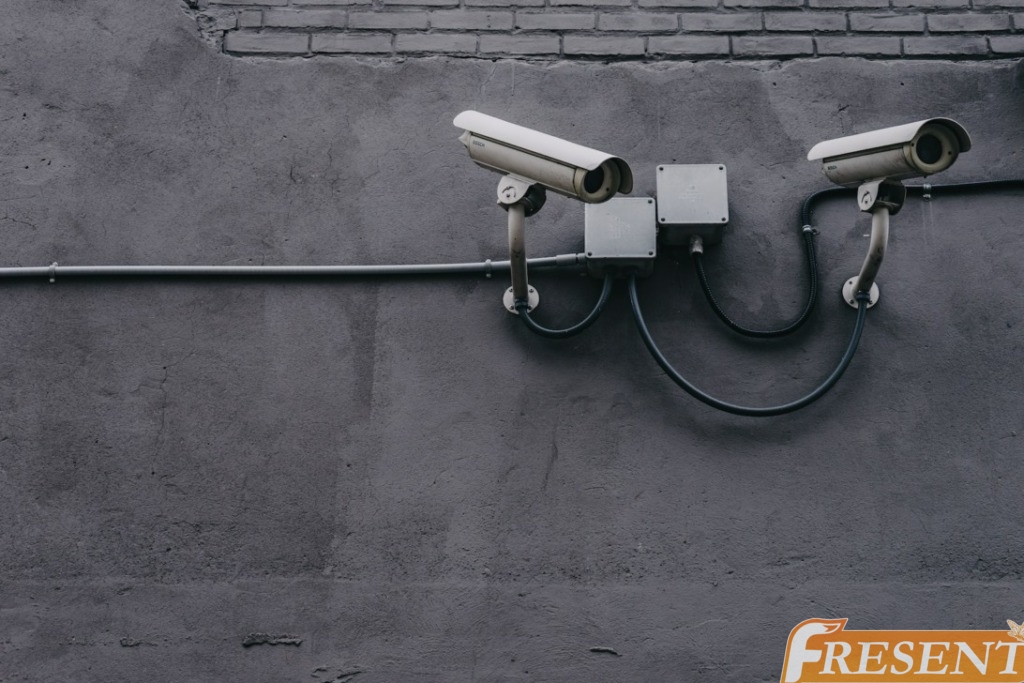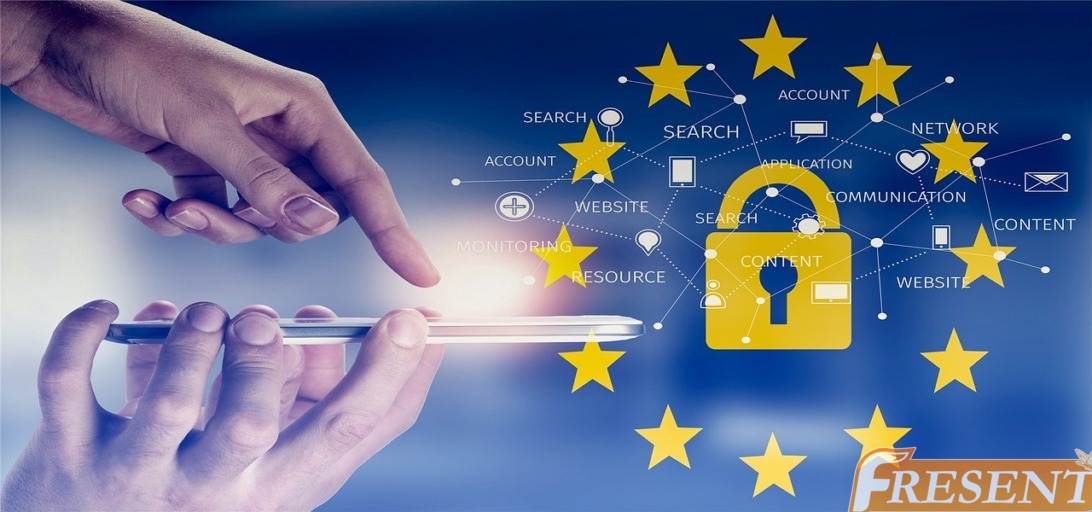Email Security
As we become increasingly reliant on email for both work and personal communication, it’s important to take steps to safeguard our email addresses and protect our digital privacy. In this article, we’ll cover some of the best ways to do just that.
We’ll start by looking at email security, and how using a secure email service can help protect your messages from being intercepted. We’ll also explore how two-factor authentication can add an extra layer of security to your account.
Next, we’ll turn to protect your computer itself, with tips on creating strong passwords and keeping your software up-to-date.
When it comes to web browsing, we’ll show you how to use a VPN to keep your data safe from prying eyes, and how to clear your cookies and browsing history to prevent companies from tracking your online activity.
And finally, we’ll give some advice on social media security, including how to limit the amount of personal information you share online and make your accounts private.
By following the tips in this article, you can help protect your digital privacy and safeguard your email address from being hacked or compromised.

Using a Secure Email Service
There are several ways to protect your digital privacy, and one of the most important is to use a secure email service. Emails are the gateway to your digital world, and everything starting from your identity-related email to your money-related information is present there.
There are many email services available, and they all offer slightly different features. However, there are some basic things that you should look for in any secure email service.
First, the service should use encryption to protect your email messages. This means that even if someone was able to intercept your messages, they would not be able to read them.
Did you know: Mutant Mail provides you with GPG and PGP encryption which is bulletproof and cannot be cracked.
Second, the service should allow you to create secure passwords for your account. This will help to protect your account from being hacked.
Third, the service should offer two-factor authentication. This means that in addition to your password, you will also need to enter a code that is sent to your phone or generated by an app. This makes it much harder for someone to hack into your account.
Finally, the service should have a good reputation. You can check out online reviews to see what other users have said about the service. Make sure to choose a service that has positive reviews and that offers the features that you need.
Protecting Your Email Account with Two-Factor Authentication
Email is one of the most commonly used tools for communication and data transfer, which makes it a prime target for hackers. To protect your email account and keep your information safe, it is important to enable two-factor authentication.
Two-factor authentication (2FA) is an extra layer of security that requires not only your password, but also a second form of identification, such as a fingerprint, USB key, or code generator.
Enabling 2FA on your email account will help to prevent unauthorized access, even if someone knows your password. If your password is compromised, 2FA will require an attacker to have access to your second factor to log in to your account.
There are many different ways to enable 2FA on your email account. Some common methods include using an app like Google Authenticator or Authy or using a hardware token like YubiKey.
Once 2FA is enabled on your email account, you will be prompted for your password as well as your second factor whenever you log in. This adds an extra step to the login process, but it will help to keep your account safe from attacks.
Keeping Your Computer Secure
Computers are part of our everyday lives. They are used for work, school, banking, shopping, and entertainment. With all of the personal information we store on our computers, it is important to take steps to protect our digital privacy. After all, your overall protection is determined only by your weakest link.
There are a few simple steps you can take to safeguard your email address and other personal information:
1. Choose a strong password and don’t reuse it. A strong password is at least 8 characters long and includes a mix of upper and lower case letters, numbers, and symbols. Avoid using easily guessed words like your birthday or your pet’s name. If possible, enable two-factor authentication for an extra layer of security.
2. Be cautious about what information you share online. Be careful about sharing personal information like your address, phone number, or date of birth. When creating an account on a website, use a disposable email address instead of your primary email address.
Tip: Mutant Mail can double down as a disposable email address.
3. Keep your software up to date. Regularly install updates for your operating system and other software programs. These updates often include security patches that can help protect your computer from malware and other security threats.
4. Use a VPN when connected to public Wi-Fi networks. Public Wi-Fi networks are often unsecured, meaning that someone could potentially intercept the data you’re sending and receiving. A VPN (a virtual private network) encrypts your data so that it can’t be intercepted.
5. Install security software on your computer. Anti-virus software can help protect your computer from malware, while a firewall can help block malicious traffic from reaching your computer.
By taking these simple steps, you can help protect digital privacy on your computer and keep your personal information safe from hackers and other cybercriminals.

Creating Strong Passwords
The first step to protecting your digital privacy is to create strong passwords for all of your online accounts. A strong password is difficult for others to guess and contains a mix of letters, numbers, and symbols.
When creating a password, avoid using easily guessed words like your name, address, or birth date. Also, don’t use easily guessed sequences of numbers or letters such as ‘123456’ or ‘abcdef.’ Instead, come up with a unique phrase that you can easily remember but that would be hard for someone else to guess. For example, you could use a line from your favorite song or movie and mix it up with some symbols and numbers.
To make your password even stronger, add a mix of uppercase and lowercase letters, numbers, and symbols. For example, instead of using the phrase ‘I love movies,’ you could use ‘Il0v3M0vi3s!’ This may look like gibberish to someone who doesn’t know the secret phrase, but it’s actually quite easy to remember once you get used to it.
One final tip: when creating passwords for different accounts, don’t use the same password for all of them. If a hacker manages to guess your password for one account, they will then have access to all of your other accounts as well. So make sure each of your passwords is unique.
If you are having an issue remembering a unique password for each service, use a password manager.
Strong passwords make the base for your digital privacy and keep your online accounts safe from hackers.

Web Browsing Security
When it comes to safeguarding your digital privacy, one of the most important things you can do is to make sure your web browser is secure. A secure web browser will encrypt your communications with websites, making it much more difficult for third parties to intercept and read your data.
One of the first things you should do is make sure you’re using a reputable and up-to-date web browser. The two most popular and secure web browsers are Google Chrome and Mozilla Firefox. If you’re not using either of these browsers, we recommend switching to one of them. Both Chrome and Firefox offer a high level of security, and they’re regularly updated with the latest security patches.
In addition to using a secure web browser, you should also take steps to protect your web browsing activity from being tracked. One way to do this is to use a virtual private network (VPN). A VPN encrypts all of the traffic between your device and the VPN server, making it much more difficult for third parties to track your activity. We recommend using a VPN whenever possible, especially if you’re using public Wi-Fi.
By taking these steps, you can make it much more difficult for third parties to track your online activity and steal your personal information.
Use a VPN
A VPN, or Virtual Private Network, is a tool that can be used to protect your online privacy. When you connect to the internet through a VPN, your traffic is encrypted and routed through a secure tunnel. This makes it much more difficult for anyone to spy on your online activity or steal your personal information.
There are many different VPN providers to choose from, and it is important to select one that offers high-quality security and privacy features.
Some important considerations include whether the VPN uses military-grade encryption, how often the VPN server locations are changed, and whether the provider keeps any logs of user activity.
Using a VPN is one of the best ways to safeguard your online privacy, and it is an essential tool for anyone who wants to maintain their anonymity online.
Clear Your Cookies and Browsing History
When it comes to digital privacy, one of the simplest and most effective ways to protect your data is to clear your cookies and browsing history regularly. This will help to prevent companies and other third parties from tracking your online activity and collecting data about you without your knowledge or consent.
Tip: For folks who are unaware, cookies are small files responsible to ensure you remained logged in to a website after you have closed it.
To clear your cookies and browsing history in most web browsers, simply go to the browser’s settings and look for the options to delete your cache and cookies. In some rare cases, you may need to download a separate plugin or extension to do this. Once you have cleared your cookies and browsing history, be sure to log out of any accounts that you are logged into, such as email, social media, or online banking.
If you are concerned about someone being able to track your online activity, there are also a few steps you can take to further protect your privacy. For example, you can use a Virtual Private Network (VPN) which will encrypt your internet traffic and make it more difficult for anyone to track what you are doing online. You can also use a secure web browser such as Tor which routes your traffic through multiple layers of encryption to make it more difficult to be tracked. Using adblockers can help mitigate your activity tracking as well.

Disable Browser Extensions
Most browsers come with a set of default extensions that are installed when you first set up the browser. However, there are many other extensions available for download from the internet. Some of these extensions can be very useful, but many of them can also pose a serious threat to your privacy.
Extensions are small programs that run inside your browser and can access all of the data that you browse. This means that if an extension is malicious, it can easily collect your personal data without your knowledge or consent.
There are a few things that you can do to protect yourself from malicious extensions:
1. Only install extensions from trusted sources.
2. Be careful what permissions you grant to extensions. Only grant the minimum permissions that an extension needs to function.
3. Keep your extensions up to date. Extension developers often release updates to fix security vulnerabilities.
4. Uninstall any extensions that you no longer use or need.
5. Use a browser that has built-in security features to protect against malicious extensions. For example, Google Chrome has a built-in extension blacklist that blocks known malicious extensions.

Social Media Security
As social media increasingly becomes a part of our everyday lives, it’s important to be aware of the potential risks to our digital privacy. While social media can be a great way to connect with friends and family, it can also be a breeding ground for identity theft, cyberbullying, and other online scams.
Here are a few tips to help you protect your digital privacy on social media:
1. Be thoughtful about what you post. Consider carefully what information you share on social media, and remember that once something is posted, it’s very difficult to take back. If you wouldn’t want your boss or your grandmother to see it, then don’t post it!
2. Use privacy settings. Most social media platforms have privacy settings that allow you to control who can see your posts. Take advantage of these settings to limit access to your account to only people you know and trust.
3. Don’t click on suspicious links. Many scammers use social media to spread malware or phishing for personal information. Be wary of any links or attachments you receive from people you don’t know, even if they seem harmless.
4. Be careful about friending or following people you don’t know. When you connect with someone on social media, you’re also giving them access to your personal information. So be selective about who you friend or follow, and consider creating separate accounts for personal and business use.
5. Use strong passwords and two-factor authentication. Choosing strong passwords (i.e., passwords that are long, complex, and unique) is one of the best ways to protect your online accounts from being hacked. And using two-factor authentication (where available) adds an extra layer of security by requiring you to enter a code from your phone or another device in addition to your password when logging into an account.
Limit the Amount of Personal Information You Share
When you sign up for an online account or service, you are often asked to provide personal information. This includes your name, email address, physical address, and sometimes even your credit card information. While it may be convenient to simply provide this information, it is also important to consider the implications of doing so.
Your personal information is valuable. It can be used to track your online activity, target you with ads, or even steal your identity. By sharing less of it, you can help protect your privacy and keep yourself safe from unwanted attention.
Don’t Click on Links from Unknown Sources
There are a lot of ways that people can try to get your personal information online. One of the most common ways is by sending emails with links that look like they come from a legitimate source but actually lead to a fake website.
Once you enter your personal information on the fake website, the person who created it can then use it to steal your identity or commit other crimes.
To protect yourself from this type of scam, you should never click on links in emails from people or businesses that you don’t know. Even if the email looks legitimate, it could be fake. If you’re not sure whether an email is real or not, you can go to the website of the company that supposedly sent it and look for the link there.
It’s also important to be careful about clicking on links that you see on social media websites and in online ads. Even if these links come from people or companies that you know and trust, they could still be fake. If you’re not sure whether a link is real or not, you can hover over it with your mouse to see (the domain) where it will take you before you click on it.

Using Adblockers to protect against activity tracking
Most internet users are unaware of the fact that their online activity is being tracked and monitored by both governments and private companies.
This activity tracking includes everything from the websites you visit the things you search for online. While some people may not be bothered by this, others may feel that their privacy is being invaded.
There are a few ways to protect your online privacy, but one of the most effective is to use an adblocker. Adblockers are programs that block advertising cookies and other tracking tools that are used to collect data about your online activity. By using an ad blocker, you can prevent companies and government agencies from tracking your online behavior.
In addition to using an ad blocker, you should also take care to use a secure web browser and only connect to secure websites. You should also be careful about the information you share online, as well as the information you provide when creating accounts on websites. By taking these precautions, you can help protect your digital privacy.
Wrapping Up
In conclusion,safeguarding your email address is an important way to protect your digital privacy. By following the tips in this article, you can help keep your email address safe from prying eyes. So don’t delay, start safeguarding your email address today!

